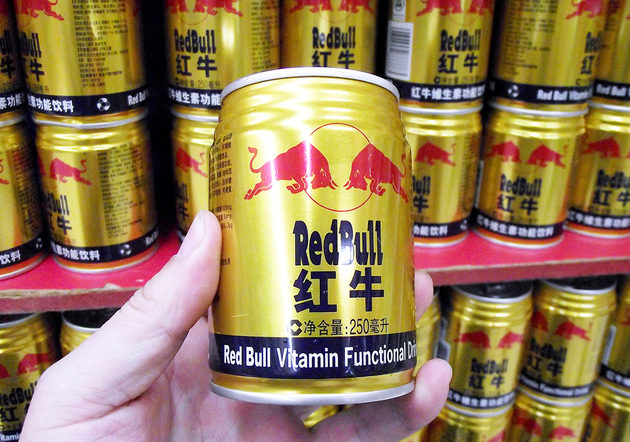Apr. 17 (NBD) -- Data from China's leading industry research institute ASKCI Consulting shows that the country's retail sales of energy drink will hit around 15 billion liters by 2020, with the turnover to reach approximately 163.5 billion yuan (26.1 billion U.S. dollars).
Between 2009 and 2015, the niche market experienced an annual compound growth rate of 13.3 percent in retail sales and an annual rise of 16.59 percent in turnover in China.
The booming industry has attracted Chinese dairy giant Yili Group in addition to dietary supplement and pharmaceutical firms like By-Health, Jiang Zhong Pharmaceutical, Xiangxue Pharmaceutical, as well as Shijiazhuang Yiling Pharmaceutical.
NBD has learned from Yili Group that the company has developed a kind of energy drink, which targets young customers aged 18-35 and will be soon distributed via the company's core sales channels and systems.
The newcomer is expected to face strong pressure to grab market shares from well-established players.
According to the market research company Mintel's report in 2016, Red Bull dominated the Chinese energy drink market with a 78-percent market share, followed by Ichi More (5.8 percent) and Dali Hi-Tiger (5.3 percent). The market landscape hasn't changed much to date.

Photo/VCG
However, Red Bull's escalating trademark dispute adds uncertainty to the energy drink market.
Recently, it was reported that Bangkok-based T.C. Pharmaceutical Industry Co., Ltd., the creator and owner of the trademark of "Red Bull", had launched its own version of Red Bull energy drink. The news hadn't been confirmed by the company.
At the same time, Reignwood Group, whose trademark licensing of "Red Bull" with T.C. Pharmaceutical Industry has expired, is ramping up efforts to promote its own proprietary brand War Horse.
Mintel analysts told NBD that the trademark dispute will harm the interests of Reignwood Group, but it won't affect Red Bull's brand image and appeal.
Zhu Danpeng, an analyst of China's food and beverage industry, also believes there won't be big changes in the market landscape. He said Red Bull will retain its market leadership, and the intense competition exists among second-tier brand like Eastroc Beverage, Hi-Tiger, Carabao, and Recca. Eastroc Beverage recently announced its sales surpassed 4 billion yuan (637.2 million U.S. dollars) last year. At the same time, some foreign brands like Monster Beverage Corporation are gearing up for expansion in China.
In terms of the number of brands, the energy drink market is already a "Red Ocean," but in respect of market consumption, it is a "Blue Ocean," Zhu noted. According to Zhu, young people born in the 2000s are becoming major consumers of energy drink due to their habits of staying up late, and their huge demand will be a strong driver to energy drink sales.
Brands offering great taste, high-quality raw materials, good formula, and fine packaging would be easier to win the market, beverage industry expert Chen Wei said to NBD.
Chen also mentioned that the bottled design will likely reshape the energy drink market, as such design is widely adopted in the whole beverage market.
Email: lansuying@nbd.com.cn


 川公网安备 51019002001991号
川公网安备 51019002001991号





